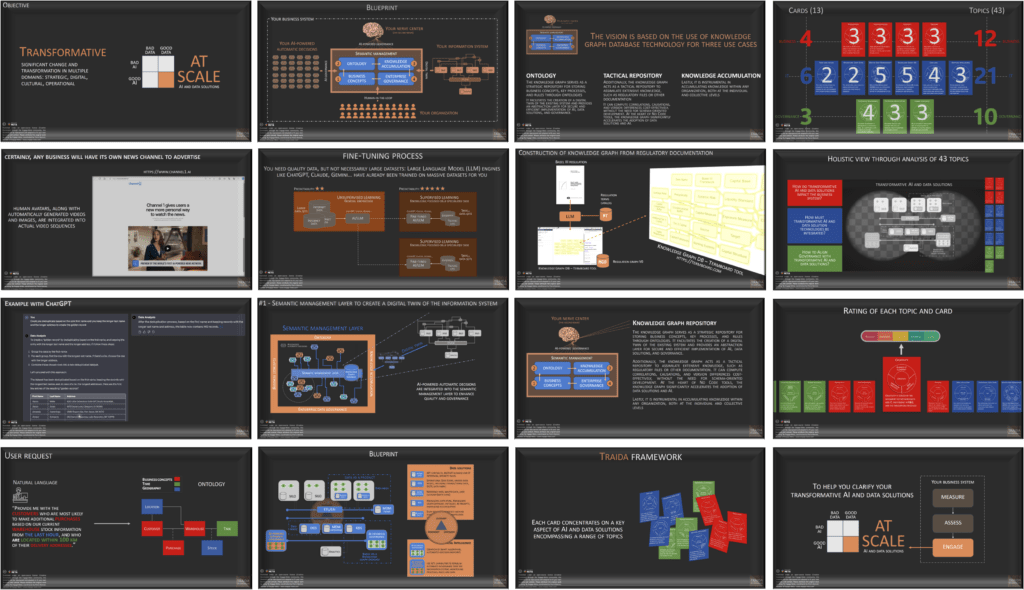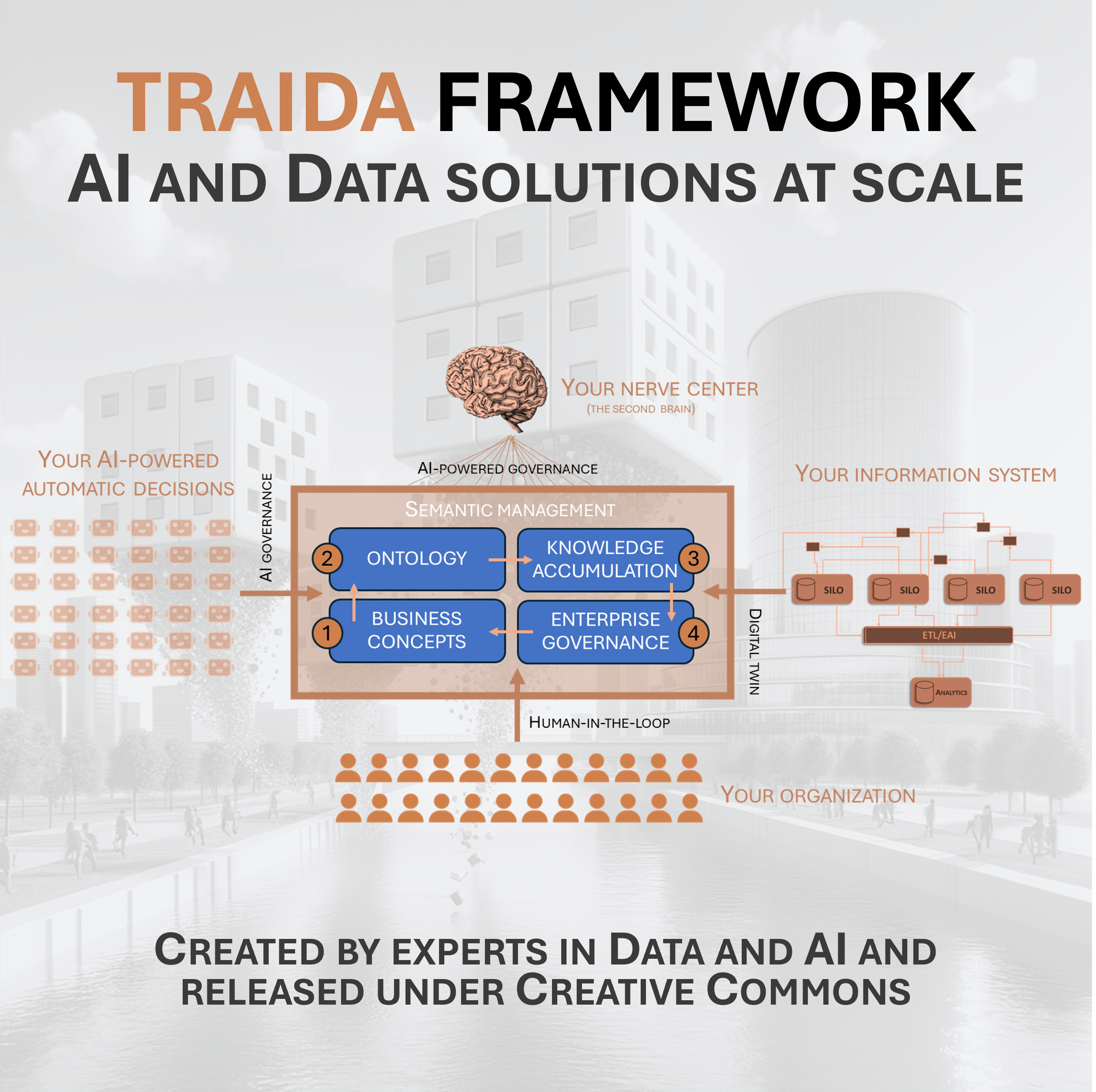Slide deck content (more than 175 slides, creative commons license, open-source, PDF 13,574Kb)

- The context of our approach
- A vision for transformative AI and data solutions
- Alignment of our vision with the market
- Impacts on the business
- Impacts on the IT system
- The TRAIDA framework
- The final report deliverable
- Evaluation process to assess and build your transformative AI and data solutions
- Integration with Enterprise Governance (EG)
- Integration with Enterprise Architecture (EA)
- Post-consultation services
- AI software list
Transformative AI and data solutions demand a robust semantic management layer for scalable deployment. Within this slide deck, we aim to demonstrate the operation of such integration, elucidating key concepts including the digital twin, human-in-the-loop, AI governance, AI-powered governance (often dubbed the ‘second brain’), and semantic management. Unsurprisingly, at the core of this architecture lies a knowledge graph repository, essential for managing ontologies and facilitating the accrual of knowledge.
As a seasoned Data Management expert with an extensive background in non-schema oriented databases and semantic modeling, I view the knowledge graph repository as a contemporary reimagining of the traditional MDM concept—more versatile and semantically aligned with the business systems of any organization. It goes beyond the traditional scope of merely handling master and reference data, encompassing a wide array of data types, processes, and critical rules. The confluence of AI—whether generative, symbolic, or analytical—with knowledge graph databases heralds a new era in semantic modeling and management, thereby empowering the deployment of transformative AI and data solutions for organizations large and small.
In this presentation, you’ll discover an initial iteration of the TRAIDA framework for Transformative AI and data solutions, articulated through 13 cards and 49 topics designed to guide you on your journey through AI and data solutions.
This work is shared under a Creative Commons license; it is open-source, available for educational use and business development.
Should you wish to collaborate with Engage-Meta and contribute to the enrichment of the TRAIDA framework, do not hesitate to reach out (pierre.bonnet@hlfl-consulting.com).
Pierre Bonnet – ENGAGE-META


